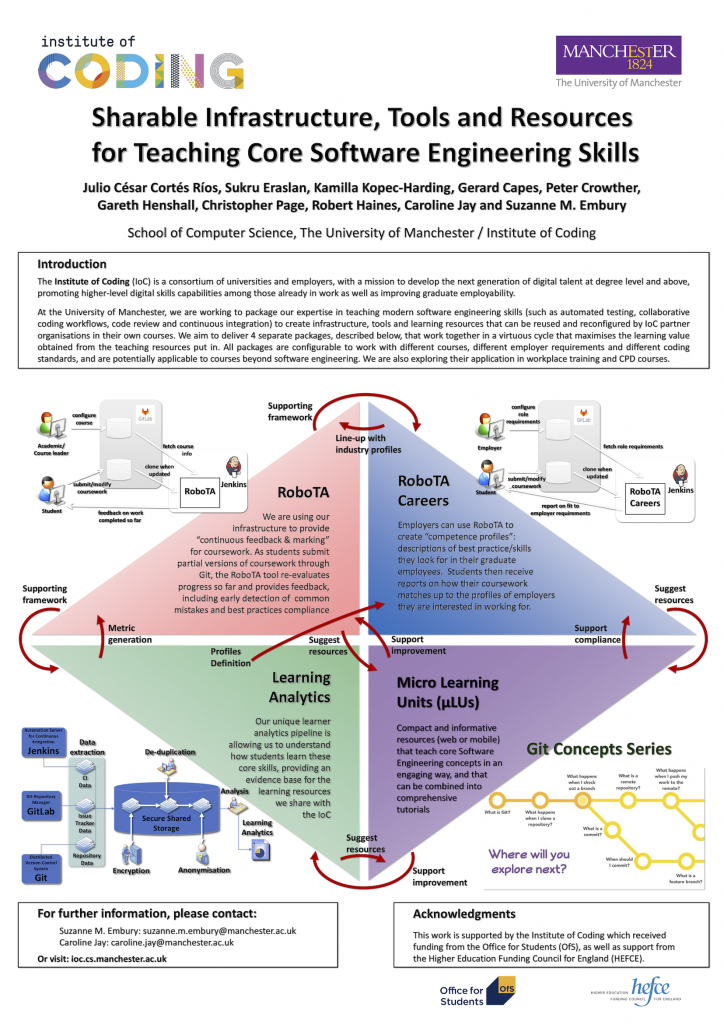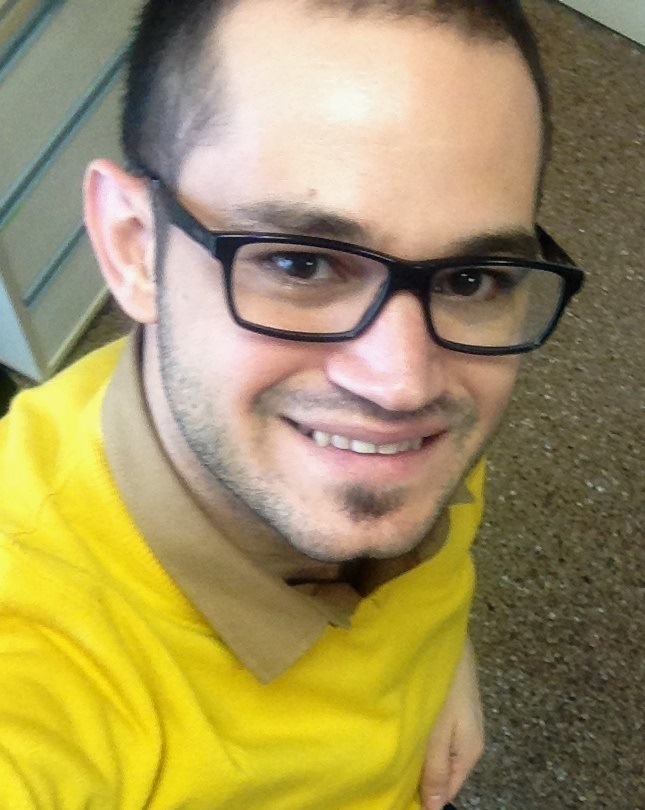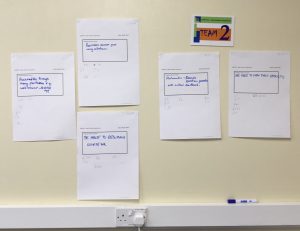
We have recently begun an extensive evaluation of our tool that recognises the major Git workflows from an examination of the commit and branching patterns in use in a Git repository. We’ve created a common framework for defining Git workflows that allows the relationships between different workflows to be clearly identified and understood. We want to see if the framework is precise enough to allow us to accurately identify the workflows in use on a project.
We’re using repositories publicly hosted on GitHub to carry out these tests. See the project page for more information, and details of our privacy policy and how we are handling the data obtained. This page lists the repositories we are using in the study. If you are a contributor to one of these, please see the data management plan and privacy policy regarding our use of your data on the project page.


 Julio, Sukru and Suzanne recently attended the IoC annual conference in Manchester, where we presented
Julio, Sukru and Suzanne recently attended the IoC annual conference in Manchester, where we presented 

 We are pleased to welcome Julio Cesar Cortes Rios to the Manchester IoC team, as a post-doctoral research assistant. Julio is an experienced software architect and manager, who has worked on a range of projects, including fingerprint recognition and biometrics systems for the Mexican Government. He holds a BSc and an MSc in Computer Science from Universidad La Salle, Mexico, and a PhD in Computer Science from the University of Manchester.
We are pleased to welcome Julio Cesar Cortes Rios to the Manchester IoC team, as a post-doctoral research assistant. Julio is an experienced software architect and manager, who has worked on a range of projects, including fingerprint recognition and biometrics systems for the Mexican Government. He holds a BSc and an MSc in Computer Science from Universidad La Salle, Mexico, and a PhD in Computer Science from the University of Manchester.
